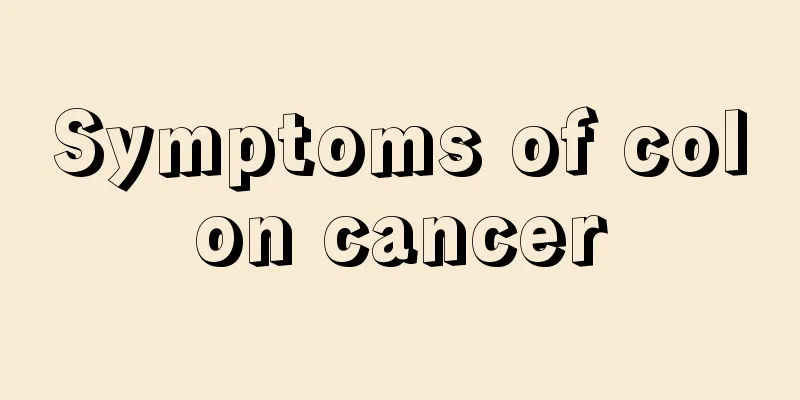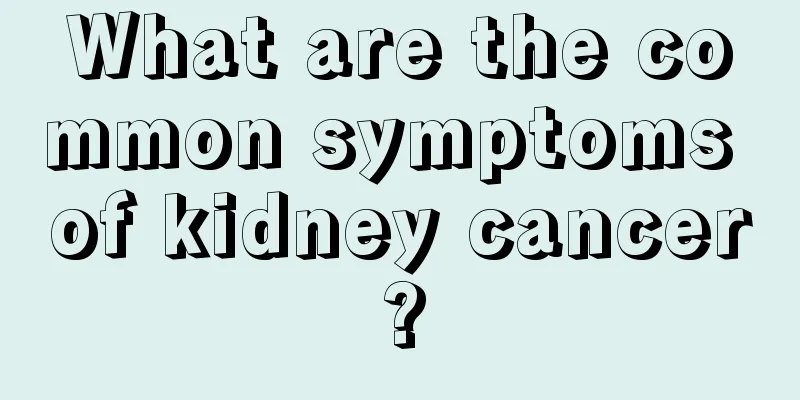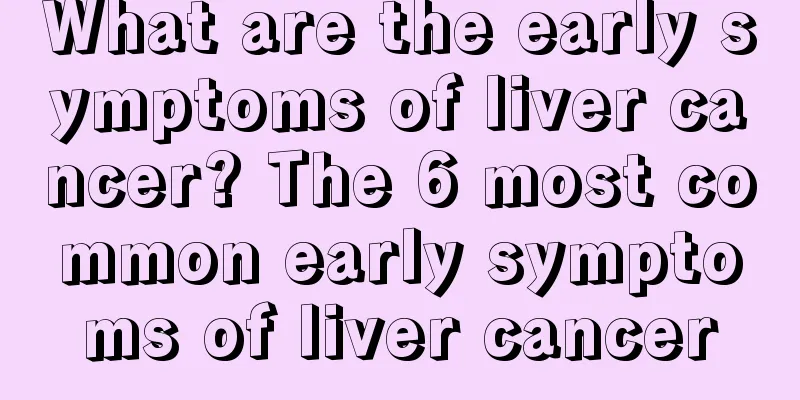Symptoms of colon cancer

|
A large amount of literature shows that the peak age of colorectal cancer in China is 40 to 50 years old. In developed countries in Europe and America, the peak age is 55 to 70 years old. Rectal cancer accounts for 60 to 70% of colorectal cancer in my country, while in the United States, rectal cancer accounts for less than 50% of colorectal cancer patients. Early colorectal cancer may not cause any symptoms. As the disease progresses, different clinical manifestations may occur depending on the location of the lesion, such as changes in bowel habits or characteristics, increased frequency of bowel movements, blood and mucus in the stool, thinning of the stool, anal prolapse, distending pain, tenesmus, constipation or diarrhea and abdominal pain, intestinal obstruction symptoms, and systemic symptoms such as weight loss, fatigue, and anemia. The order of symptom onset varies depending on the location of cancer growth and pathological type. Right-sided colon cancer often presents with systemic symptoms such as anemia, abdominal mass, abdominal pain, and fatigue. Few patients seek medical attention for sudden bloody stools, and a few have symptoms such as constipation and frequent bowel movements. Left-sided colon cancer has bloody and mucus stools, frequent bowel movements, and is more likely to cause intestinal obstruction than right-sided colon cancer. Symptoms include abdominal pain and bloating, and anemia is less common than right-sided colon cancer. The early symptoms of rectal cancer are changes in defecation habits, that is, people who used to have regular defecation habits become irregular, constipation or increased frequency of defecation, a feeling of incomplete defecation, and discomfort in the anus after defecation. Later, the stool is manifested as blood, blood and mucus in the stool. As the disease progresses, rectal irritation symptoms, frequent bowel movements, frequent bowel movements, a feeling of anal prolapse, and tenesmus may appear. If tissues are invaded, related symptoms may occur. Most patients with rectal cancer have these symptoms, and are often misdiagnosed as "chronic bacillary dysentery" or "enteritis". Due to the lack of specific clinical manifestations of colorectal cancer, coupled with the lack of knowledge of patients, poor self-care awareness or avoidance of medical treatment, they seek medical treatment late. They often use drugs to treat diseases such as "dysentery, enteritis, hemorrhoids" on their own, and only seek medical treatment in the internal medicine or surgery department when it is ineffective. Doctors are not very vigilant about colorectal cancer or are influenced by the mindset of common and frequently occurring diseases in their department, which can easily lead to misdiagnosis. The prognosis of different pathological stages varies greatly. Therefore, when the above symptoms occur, you should go to a specialist hospital in time to avoid delaying the condition. |
<<: What are the best ways to prevent ovarian cancer?
>>: Treatment of cervical precancerous lesions
Recommend
Onychomycosis nail cover falling off
Some people have severe onychomycosis that causes...
How many years can one live with advanced liver cancer
The prognosis of advanced liver cancer depends on...
Do you know how to peel water chestnuts?
There is a kind of fruit of an aquatic herb, the ...
Eat peanuts after eating garlic
When it comes to garlic, everyone knows that it i...
Can hypokalemia be cured?
Hypokalemia is a condition in which the serum pot...
What are the basic hair care needs?
Women all want to have beautiful hair, but it is ...
Can coffee spots of neurofibromatosis be treated?
Café-au-lait spots are an important sign of neuro...
What should I do if the skin of my knuckles becomes keratinized and thickened?
The skin on the joints is relatively thick. Becau...
Can non-small cell lung cancer be cured?
Non-small cell lung cancer is basically incurable...
Effect of anesthetics on heart rate
The most basic examination before surgery in the ...
How to care for lung cancer patients undergoing surgery? Introduction to nursing measures before and after lung cancer surgery
Lung cancer is a disease that seriously endangers...
Can an 81-year-old with prostate cancer undergo surgery?
Whether an 81-year-old patient with prostate canc...
Why does dermatitis itch especially at night
Many people with dermatitis symptoms will feel ab...
Which chopsticks are the healthiest to use for eating
Everyone is very familiar with chopsticks. They a...
Analysis of various treatment methods for gastric cancer
Generally speaking, the incidence of gastric canc...









